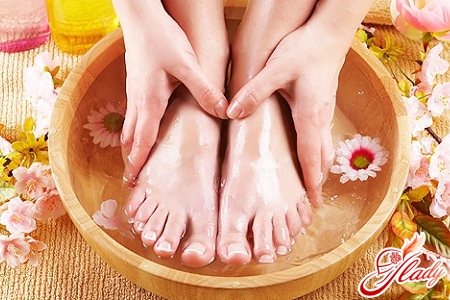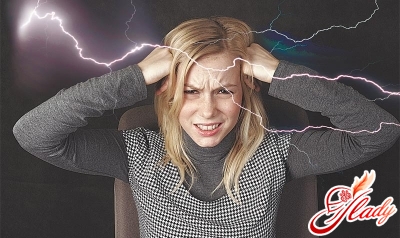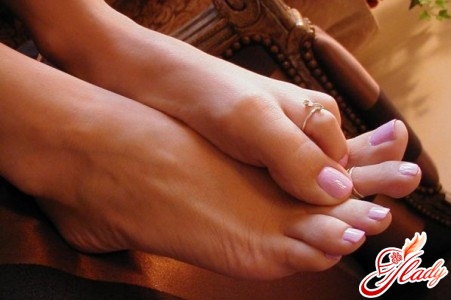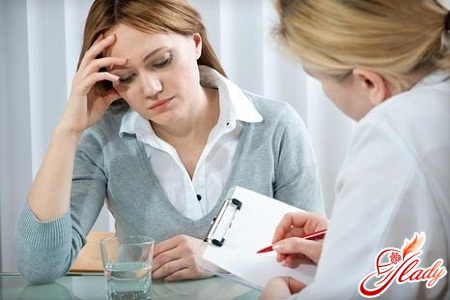 The most common complaint that is oftendoctors hear - it's a pain in the stomach after eating. In order to solve this problem, you need to be well aware of what functions the stomach performs, and what factors can lead to a disruption of the normal functioning of the gastrointestinal tract. This, as well as how to alleviate the condition of a sick person, will be discussed in this article. As you know, the stomach plays a major role in digestion during digestion. Chewed food, through the esophagus, enters the cavity of the stomach. In the stomach, food is mixed with the contents of the stomach - gastric juice. Gastric juice is produced by internal glands, which are located in the mucous membrane of the stomach, which, in turn, is surrounded by gastric muscles. These glands within a day produce about two to three liters of gastric juice. The composition of gastric juice includes hydrochloric acid, which has an antibacterial effect and provides digestion of proteins, pepsin, also necessary for the successful digestion of food, and mucus, necessary to protect the mucous membrane of the stomach from the action of hydrochloric acid. Simply put, gastric juice consists of protective and aggressive components, balanced in such a way that the stomach itself is not affected. However, under the influence of various unfavorable factors, this balance can be violated. There is a sufficient number of reasons capable of provoking the development of certain diseases of the stomach. However, most often the cause of pain in the stomach are those foods that people use for food. For example, intolerance to milk sugar or lactose often leads to bloating, diarrhea, and most importantly - to spastic pain. Fatty foods can lead to the appearance of will in the area of the gallbladder, and excessively hot or cold food causes pressing or burgeoning pain.
The most common complaint that is oftendoctors hear - it's a pain in the stomach after eating. In order to solve this problem, you need to be well aware of what functions the stomach performs, and what factors can lead to a disruption of the normal functioning of the gastrointestinal tract. This, as well as how to alleviate the condition of a sick person, will be discussed in this article. As you know, the stomach plays a major role in digestion during digestion. Chewed food, through the esophagus, enters the cavity of the stomach. In the stomach, food is mixed with the contents of the stomach - gastric juice. Gastric juice is produced by internal glands, which are located in the mucous membrane of the stomach, which, in turn, is surrounded by gastric muscles. These glands within a day produce about two to three liters of gastric juice. The composition of gastric juice includes hydrochloric acid, which has an antibacterial effect and provides digestion of proteins, pepsin, also necessary for the successful digestion of food, and mucus, necessary to protect the mucous membrane of the stomach from the action of hydrochloric acid. Simply put, gastric juice consists of protective and aggressive components, balanced in such a way that the stomach itself is not affected. However, under the influence of various unfavorable factors, this balance can be violated. There is a sufficient number of reasons capable of provoking the development of certain diseases of the stomach. However, most often the cause of pain in the stomach are those foods that people use for food. For example, intolerance to milk sugar or lactose often leads to bloating, diarrhea, and most importantly - to spastic pain. Fatty foods can lead to the appearance of will in the area of the gallbladder, and excessively hot or cold food causes pressing or burgeoning pain.
Irritable Stomach Syndrome
One of the most common causes,causing stomach pain after eating, is irritable stomach syndrome. It occurs occasionally in about 80% of all people. However, in no case should it be confused with gastritis of the stomach - in spite of the fact that their symptoms are similar, these are completely different diseases. So, the symptoms of an irritated stomach are:
- Often repeating nausea, which occurs for no apparent reason. And there is a feeling of nausea, usually immediately after eating.
- Presence of burping in the first hour after eating. And pay attention - only a multiple eructation is taken into account, but not a single one.
- The feeling of heartburn, arising after the intake of any food, even neostroy and lean.
- The appearance of gastric spasms in the first hours after eating.
- The feeling of heaviness in the stomach, appearing in the first hours after the person ate.
- In especially severe cases, if a person does not consult a doctor and take the necessary measures to eliminate this stomach disease, even a significant loss of body weight is possible.
Causes that may lead to the development ofirritable stomach syndrome, not so much - as a rule, it is the use of certain foods. These include overly acute, fatty, salty foods, which is very difficult to digest. And it is only natural that the first thing to do when one or more of the above symptoms appear is to pay close attention to your diet. All food should be as natural and dietary as possible. In the event that the pain in the stomach is accompanied by a feeling of heaviness and fullness of the stomach, it is not superfluous to help the stomach, stimulating the gastrointestinal peristalsis. For these purposes, traditional medicine recommends the use of various bitter herbs, for example, Benedict's pharmacy, centenarians, ayr ordinary, bitter clover. These herbs should be brewed as follows - for 500 grams of water you need to take one tablespoon of any of the above herbs. Grass should be brewed just like ordinary tea. Take it one glass a day, twice a day, until the feeling of discomfort and painful sensations disappear completely. In the event that painful sensations are accompanied by increased gas formation (flatulence), a sick person can purchase special pharmacological preparations at the pharmacy. And you can do with improvised means: get in the pharmacy such grass as anise, fennel, chamomile or cumin. Place one tablespoon of raw material in a thermos bottle, pour two cups of boiling water. Insist for about two hours, after which the infusion strain with a gauze cloth. Take infusion requires one teaspoon every two hours. In almost all cases, relief comes on the second day. In the same case, if the pain in the stomach is accompanied by the appearance of heartburn, there is every reason to suspect that the patient has a place to have gastroesophageal reflux. With such a violation, hydrochloric acid from the stomach enters the human esophagus. Under the influence of hydrochloric acid there is irritation of the esophagus and its inflammation, which lead to a feeling of heartburn. In order to eliminate this sensation, it is necessary to buy antacids, which are sold in a pharmacy without a doctor's prescription. Such drugs, as a rule, contain calcium, magnesium or aluminum in their composition. These substances reduce the acidity of the stomach and envelop the mucous membrane of the esophagus, protecting it. A lot of people try to get rid of the annoying feeling of heartburn, taking in ordinary baking soda. And really - the feeling of relief for a while really will be. However, doctors do not strongly recommend using this method. And this is not surprising. Try the next experiment. Pour a little water into the mug and add a tablespoon of vinegar. Then put a little soda. The same thing happens in your stomach. As a result, a person has eructations, flatulence and bloating, and in addition, the mucous membrane of the stomach can begin to ulcerate. The only permissible tool is ordinary chalk. Very many people unanimously assert that ordinary white chalk, without any additives. It's enough just to chew a small piece - and heartburn disappears for a long time. And, of course, we must not forget about the need to comply with a therapeutic diet. Remember that acute, salted, smoked and fatty foods can provoke the development of severe heartburn even in a healthy person, not to mention those people who suffer from gastroesophageal reflux. During the exacerbation of irritable stomach syndrome the strictest diet is shown: the first day a sick person should drink only a weak black tea, there is nothing to eat on this day. On the second day you can start drinking jelly, on the third day - there are biscuits. And only on the fourth day in the diet of a sick person you can introduce porridge on the water and soups. In the future, you need to remember the need to follow a diet. In order to eliminate the feeling of raspiraniya and weak painful sensations, you can use moist heat. Dampen in a warm (but not hot) water terry towel, wrap it with a hot water bottle, also filled with warm water, and put on the stomach area. By the way, if you do not have a heating pad at home, you can replace it with an ordinary plastic bottle filled with warm water. The compress can be left for as long as necessary in order to disappear pain. Of course, as the cooling cools, it is necessary to change the compress. In addition, it is very effective to remove the irritation of the mucous membrane of the stomach, the ordinary chemist's chamomile. In addition to all its positive properties, pharmacy chamomile has the strongest anti-inflammatory effect. Pharmacy chamomile must be brewed as ordinary tea, and give a drink to a sick person. The only condition that must be observed is to drink infusion of chamomile without sugar, since sugar very much weakens the anti-inflammatory effect. And, in addition, tea from the chemist's chamomile is very effective against gastric bacteria. By the way, these bacteria also often cause the development of irritable stomach syndrome. Sometimes, with irritable stomach syndrome, things are even worse. The mucous membrane of the stomach can ulcerate - on its surface appear small sores that can bleed. As a rule, a similar phenomenon is observed after the intake of certain pharmacological drugs - most often antipyretic or analgesic. That's why doctors recommend drinking all the medicines with milk. Of course, in the event that a person does not suffer from an individual intolerance to milk. And always always pay attention to the annotation to medicines - if it states that taking medication should be with food - then take it. In especially severe cases, a certain amount of blood accumulates in the stomach because of the bleeding mucous membrane. And as a result, a person may have a vomiting attack, and in vomit masses one can observe scarlet, not yet clotted blood. And if the blood has already curtailed, vomit masses can contain brown clots of dried blood. And sometimes a sick person can change the color of the stool, up to black. In all such cases, the sick person or his relatives should seek medical help as soon as possible, since such symptoms may also appear if a person has started serious gastric bleeding - for example, as a result of stomach ulcers. By the way, there are some simple but very effective tips on how to reduce the risk of irritable bowel syndrome. On the need to maintain a diet during an exacerbation and a proper, healthy diet in general, we already said. However, we should not forget about the movement. In the absence of the necessary physical activity, the disorder of various body systems, including the digestive system, develops very quickly. To prevent them, doctors recommend that after each meal do not sit down for at least ten minutes. Walk a little, wash the dishes - this not only reduces the risk of developing disruptions to the gastrointestinal tract, but also helps to avoid excess weight. In addition, with all diseases of the stomach, the correct time for eating is extremely important. Often a person goes hungry all day, or has a snack in the dry, and in the evening. Returning home, at once consumes a large amount of food. However, such a diet is a direct way first to the development of irritable stomach syndrome, then gastritis, and after all - stomach ulcers. Doctors recommend eating small portions, but the interval between doses should not be too large - not more than three hours. Of course, not always and not everyone has such an opportunity - but do not forget that you can take food with you from home, and not buy fast food. Pay special attention to how you eat. Remember that the food must be thoroughly chewed. A meal "on the run" will lead to the fact that large pieces of uneaten food will fall into the stomach cavity, which can injure not only the esophagus, but also the mucous membrane of the stomach. 
Stomach ulcer
Another reason that a person canto experience pain in the stomach after eating, can become a peptic ulcer. Ulcer of the gastric mucosa in this case is localized in the upper parts of the stomach. Painful sensations in such cases, as a rule, occur in the first half an hour - after the meal. Initially, pain is mild, however. As digestion of food, the pain is greatly strengthened, often becoming and completely intolerable. This occurs as a result of increased production of hydrochloric acid, which occurs as a result of the digestive process. Gradually, as the food is digested and enters the duodenum, the pain disappears until the next meal. With ulcerative diseases of the gastrointestinal tract, painful sensations are very specific. So, with gastric ulcer, painful sensations arise either from the left side of the abdomen, or in the middle. But in the event that the ulcer has struck the mucous membrane of the stomach, painful sensations arise from the right side of the abdominal cavity. In especially severe cases, pain can be given even in the back. The pain itself can be the most diverse - pulling, aching, acute or cramping.
Gastroduodenitis
Another cause of painin the stomach after a meal is a disease such as gastroduodenitis. To some extent, this disease is similar to a stomach irritation syndrome. However, in this case, not just irritation occurs, but also a strong inflammation of the gastric mucosa. In addition, this process involves the duodenum. This disease delivers many unpleasant minutes, and the treatment of the disease also takes quite a long time. Gastroduodenitis can last for several months, then fading, then again becoming aggravated. Painful sensations for this disease periodically, sometimes quite intense. Localized pain in the epigastric region and around the navel. Practically in all cases, painful sensations occur exactly in the first hour after eating. In some cases, a sick person, in addition to pain, can complain about the heaviness in the abdomen and the feeling of raspryaniya in the upper abdomen. Often there is a belch with a sour aftertaste.
Pylorospasm
This condition is characterized by spasmodicthe gatekeeper, who is on the way out of the stomach into the duodenum. Most often this disease occurs in people who suffer from various neuroses and other disorders of the central nervous system. With pylorospasm, a person about 15 minutes after eating begins to experience severe pain in the epigastric region. After about half an hour a person starts strong repeated vomiting. And the pain, and vomiting in a person will continue until the stomach cavity is almost completely emptied. And similar attacks are repeated almost after each meal. In this case, you can not delay - a sick person should seek medical help as soon as possible. With this disease, food is practically not digested, as a result of which a person quickly loses weight. And in the absence of professional medical care, dehydration of the body and the subsequent general exhaustion of the body of a sick person can very quickly develop. 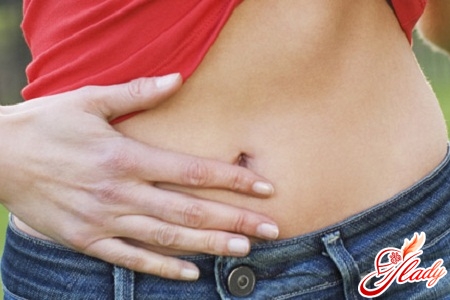
Inflammation of the gallbladder
It is also often the cause of painsensations soon after a meal become various inflammatory processes of either the gall bladder itself, or the biliary tract, for example, angiocholite or cholecystitis. In addition, I can also provoke the emergence of painful sensations of various dyskinesia of the gallbladder. More often painful sensations at the given diseases are localized in the field of the right hypochondrium. Most often, the appearance of such symptoms occurs after the use of a certain group of products. Such products include smoked, salted and fatty dishes, as well as fatty sweets - ice cream, milkshakes, halva, chocolate. That is why with a variety of diseases of the gallbladder and bile ducts it is extremely important to observe a very strict diet. In order to diagnose these diseases, with the appearance of the above symptoms, the sick person should consult a doctor - a gastroenterologist, and in his absence - a therapist.
Pancreatitis
Pancreatitis is an inflammation of the pancreas. The main symptoms of a person in this disease are the strongest abdominal pain that occurs soon after eating. Localization of pain can be different - either in the right hypochondrium, or, in particularly severe cases, with the defeat of the entire pancreas, the pain is shrouded in nature. With this disease, self-medication is also inadmissible in any case, since the consequences can be completely unpredictable, sometimes very sad - up to the development of a shock state or even the death of a sick person. That is why at the first manifestation of the disease a sick person should receive qualified medical assistance.
Irritable Bowel Syndrome
Irritable stomach syndrome has already been mentionedhigher. However, we can not fail to mention one more syndrome - irritable bowel syndrome. This syndrome develops in the event that, under the influence of various factors, irritation of the intestinal mucosa occurs. This disease is characterized by the appearance of painful sensations about an hour after eating. In addition, a sick person may experience such abnormalities as bloating, flatulence, stool violation - constipation or diarrhea. As a rule, pain almost completely disappears after defecation. In any case, if you experience stomach pain after eating, medications will not become your only panacea. Improperly selected pharmacological agents can only worsen the course of the disease. In order to help drugs, a sick person should consult a doctor. The doctor will prescribe the necessary examination, based on the results of which the disease will be diagnosed and, accordingly, the appropriate course of treatment is selected. Well, of course, in no case should not forget about their diet. None, even the most expensive medicine, is able to alleviate the condition of a sick person and eliminate the disease itself if the food is inadequate. We advise you to read:





